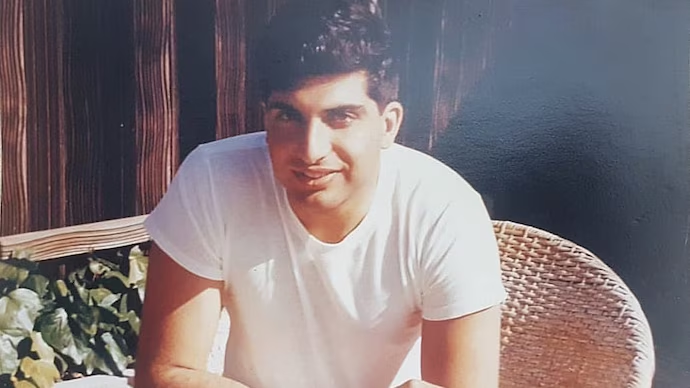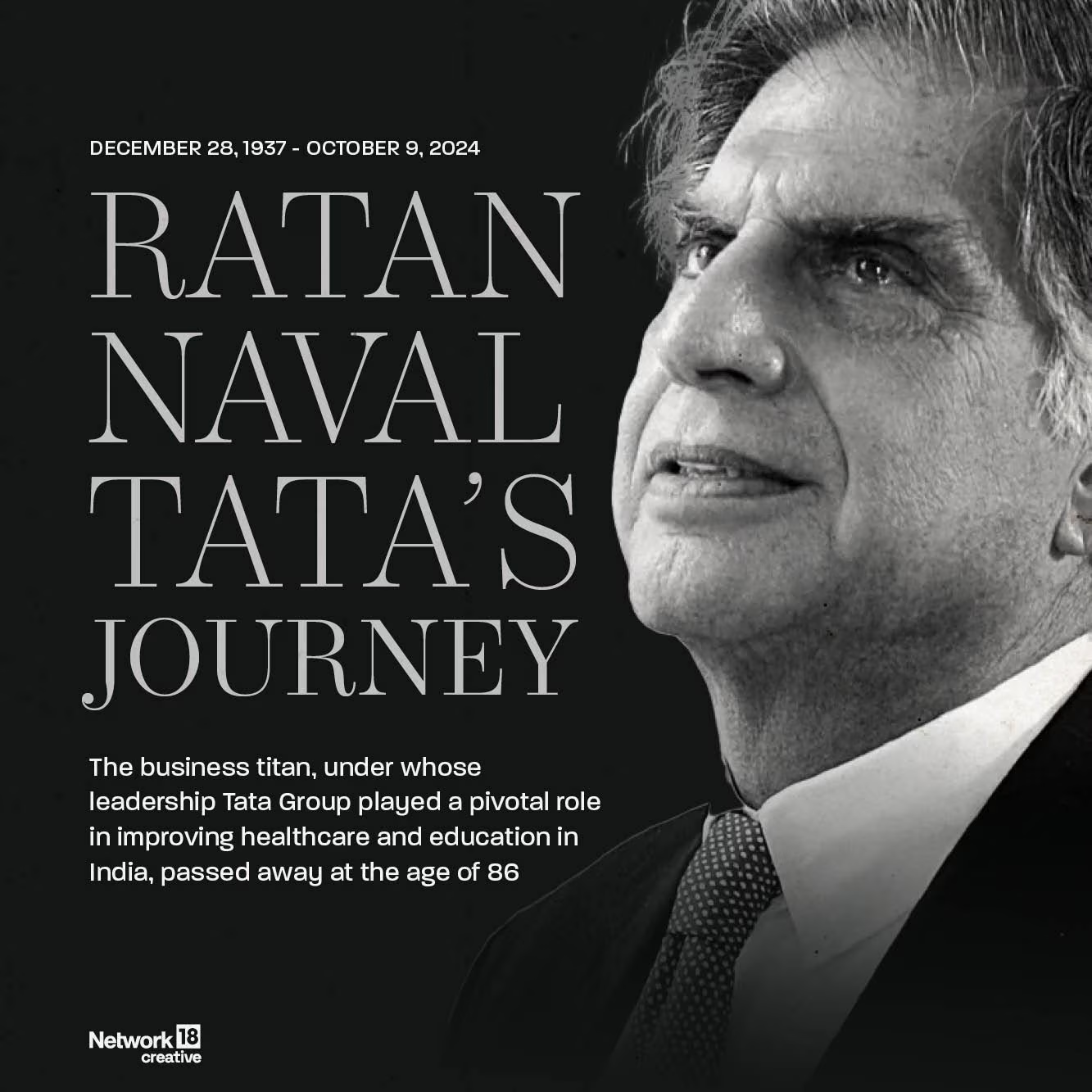Ratan Tata’s name may evoke images of industrial might, bold acquisitions, and pioneering business ventures. But the essence of his legacy extends far beyond balance sheets and boardroom victories. When news of his passing at age 86 broke, India mourned the loss of a leader who, at his core, was a man of deep humility and compassion.
During my years with the Tata Group and Regional Manager in India and the UAE, I had the privilege of seeing Ratan Tata up close. His quiet demeanor and down-to-earth nature were a constant reminder that greatness isn’t measured by the power one wields but by how one treats others. Despite his towering status, he remained remarkably approachable, never seeking attention or accolades. One of my fondest memories of him is when he’d request moments of solitude to walk on the beach with my beloved dog, Wulf. That small, personal ritual perfectly captured the essence of Ratan Tata: a man who remained grounded despite standing atop an empire.

A vivid memory of his humility comes to mind from an experience in Dubai. A group of Indian shoppers, recognizing him, gathered around, eager for photographs. Instead of shying away or showing any hint of inconvenience, Ratan Tata graciously obliged, wearing the same composed smile that made him a beloved figure to many and taking time to speak with the people. I was so surprised that even the younger children in the group knew him. For a man whose influence spanned continents, his ability to connect with people from all walks of life was a testament to the kind of leader he was.
A JOURNEY MARKED BY HARD WORK
Ratan Tata’s life was not one of inherited privilege. Though born into one of India’s most influential families in 1937, his path to the top was defined by hard work, perseverance, and a deep commitment to his values. Raised by his grandmother after his parents separated, he learned early on that family influence could only get you so far—character and grit were what really mattered.
After graduating from Cornell in 1962, Ratan Tata didn’t step into a plush office suite but instead chose to work on the factory floor at Tata Steel. There, among the machinery and limestone dust, he earned the respect of his colleagues not as the heir to an empire but as a dedicated worker who was unafraid to get his hands dirty. This was the foundation of a leadership style rooted in empathy and leading by example.

When Ratan Tata took over Tata Sons in 1991, India was on the brink of an economic revolution. He recognized that for Tata Group to survive and thrive, it needed to evolve from a family-run enterprise into a global conglomerate. His vision led to the creation of India’s first homegrown car, the Tata Indica, a symbol of the country’s ambitions on the world stage.
The Lesson in Humility: Ford’s Dismissal
But even for a leader as forward-thinking as Ratan Tata, the road was always challenging. In 1999, with Tata Motors struggling, he decided to explore selling its car division. This took him to the offices of the Ford Motor Company in Detroit, where he was met with a cold reception. The executives, including then-chairman Bill Ford, openly questioned his decision to enter the car business, mocking his lack of experience.
It was a humiliating moment for Tata, but rather than react angrily or frustrated, he walked away with quiet dignity. That moment, as humbling as it was, planted the seeds for something greater.

A VICTORY FORGED IN RESILIENCE: THE JAGUAR / LANDROVER TURNAROUND
Fast-forward nine years, and the tables had turned. In 2008, amid a global financial crisis, Ford found itself struggling to keep its luxury brands afloat. Ratan Tata, the same man they had once dismissed, stepped in to acquire Jaguar and Land Rover (JLR) for $2.3 billion. It was a bold move, given the brands’ financial trouble, and many questioned whether Tata Motors could revive them.
Ratan Tata, however, believed in Jaguar and Land Rover’s potential. Instead of imposing a top-down approach, he entrusted the brands’ management teams to make the necessary changes, offering support without micromanagement. Within a few years, JLR had become one of Tata Motors’ most profitable divisions, turning skeptics into admirers. For Tata, this was not just a business victory but a personal vindication. He didn’t gloat or hold grudges, but the message was clear: never underestimate quiet resilience.

LEADERSHIP GUIDED BY COMPASSION
His unwavering compassion set Ratan Tata apart from so many of his peers. Even in an industry where profit margins and bottom lines often dictate decisions, he always considered the human element. A telling example of this came when Tata Motors introduced robots into its factories. While many leaders might have done so to cut costs and reduce workforce size, Ratan Tata saw it differently. For him, robots were a way to lighten the burden on workers, taking over repetitive and physically strenuous tasks and ensuring employees had a better quality of life. This people-first mentality permeated everything he did.
Under his leadership, 66% of Tata Sons’ profits went to charitable causes through the Tata Trusts. Ratan Tata’s influence extended beyond business, from supporting education and healthcare to providing disaster relief. One story, in particular, captures the depth of his compassion: following the tragic 26/11 terror attacks in Mumbai, where the Taj Mahal Palace Hotel, part of Tata’s group, was targeted, Tata personally visited the families of employees who had lost their lives. He made sure they were supported for life. This was not the action of a businessman but of a human being who cared deeply for those under his charge.

Years later, I witnessed another quiet act of kindness from Ratan Tata. He visited a former employee in Pune who had fallen ill, showing up without any fanfare or media attention. This simple, genuine concern for others was the hallmark of his character.
A LEGACY WRITTEN IN LIVES
Ratan Tata’s true legacy isn’t found in the vast businesses he led or his acquisitions. It’s found in the millions of lives he touched through his philanthropy and genuine, personal connections with people. His Mumbai residence, modest and without bodyguards, reflected his unpretentious lifestyle. Even during the COVID-19 pandemic, he steadfastly supported his country, contributing $217 million to relief efforts.

Ask anyone in Mumbai, Kolkata, or Delhi about Ratan Tata; they will talk about more than just his business achievements. They’ll tell you about his humility, kindness, and profound impact on people’s lives. That is Ratan Tata’s legacy—one that goes far beyond the numbers on a balance sheet. It is a legacy rooted in compassion, dignity, and an unwavering belief in the power of doing good.
Ratan Tata may no longer be with us, his legacy will continue to inspire generations. He proved that authentic leadership isn’t about wealth or power; it’s about uplifting others, staying grounded, and leaving a positive mark on the world. The Tata Group is a unique global enterprise admired for how it values its employees, not just during their careers but often beyond. I had the privilege of spending nearly 10 years with this company, and the lessons I learned, and the relationships I built have stayed with me well into my retirement from hotel management. It was one of the most rewarding periods of my career. I sincerely hope the company remains true to its values, and I am forever grateful for the opportunity to work with such an extraordinary leader, Ratan Tata.

HELMUT H MECKELBURG
